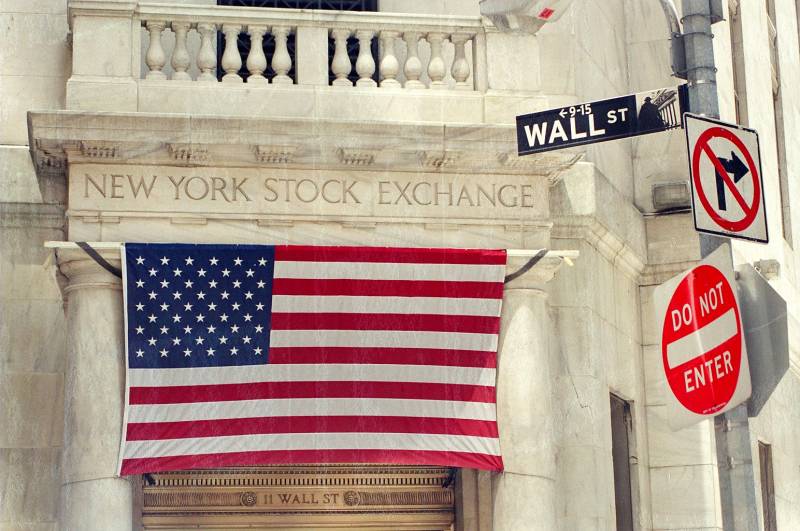Trump has declared a state of emergency: the world economy reeling

Economic news lately resemble front-line reports, or a report from the disaster zone, which in the past weeks has turned the global markets and exchanges. The growing epidemic of coronavirus, outbreak of the "oil war" — all of these sudden blows raining down on them, smashing mercilessly and indiscriminately. But let us try to understand who today is in the worst, and who, perhaps, in a better position than it was before the sudden appearance of "black swans" threatening to lead the world into a colossal financial and economic crisis.
In fact, talking about the fact that 2020 will be the starting point of a new global recession, was conducted the entire year previous, begun long before in China outbreak COVID-19. His appearance was the last straw. However, most of China now argue that most "black" days for country behind us, it's economy is already recovering and will soon return to normal mode, except that in lost exports, and even then not in all areas. However, the huge capacity of the domestic Chinese market, these losses are largely compensated. The health authorities of China believe that the global pandemic coronavirus can go into decline by the beginning of summer, when all the countries will take effective measures to combat it.
The main opponent of China, the United States, things are not so good. Became aware of the announcement in the country, President Donald trump a state of emergency. The White house intends to use not less than $ 50 billion from the reserve funds to combat the growing epidemic. In parallel, they have instructed the Ministry of energy of the country regarding an increase in oil purchases for its strategic reserve. According to him, this is due to the collapse in prices for the black gold that made such operations are "very advantageous".
However, this unexpected "gift" can have for US and extremely unpleasant downside.
According to some experts, the current low energy prices can dislodge from the area of profitability of shale oil, which is based on U.S. export expansion to the world markets of hydrocarbons. Generally speaking, predictions about the future of the US economy as such today are different to the complete opposite. If Finance Minister Steven Mnuchin argues that the coronavirus is unable to have a "lasting negative impact" and the situation is under full control of the government, the analysts at JPMorgan are predicting that the pandemic crisis "shake" the US and Europe in July and will lead to a global recession on a global scale. US GDP, according to JPMorgan, can lose 2% in the first quarter, and Europe's GDP to 1.8%.
As for the Old world and there all not thank God. Close the borders, stop the enterprise, canceled flights. Introduced modes of emergency. The world economy reeling.
On the other hand, on Friday, the stock indices of the countries of Western Europe went up, the highest growth since November 2008. A very positive role here was played by the statement of German Chancellor Angela Merkel that her government would use all available means to help German companies and their employees to cope with the consequences of coronavirus, confirmed by German Finance Minister Olaf Scholz in Berlin has financial capability sufficient to overcome the current crisis. However, the rise of the composite index of the largest enterprises of the region Stoxx Europe 600 7% on Friday while that does not compensate for his collapse the day before, on Thursday, by as much as 11% - a-half. At the same time in such market segments as automotive, tourism and entertainment, the fall was the highest since the crisis of 2008.
Similarly, on the domestic stock market. The previous week he had actually survived the worst of 2008 period: for example, the index of the Moscow exchange on March 10-13 fell by 14.8%. However, as at the end of Friday trading indexes such as Masuri and RTS again showed growth. Few corrected and oil prices - around $ 35 per barrel.
Of Course, much here will depend on the course of confrontation of the countries-exporters of oil, each of which now seeks to compete in the energy markets of competitors, dumping as much as possible. Most likely, the end of the "oil war" will be either the achievement of someone from the participants in the "bottom" below which lower rates would be impossible, or, more likely, the conclusion of a new agreement to regulate the world price of "black gold" — in the form of OPEC+ or some other.
Meanwhile, in the unambiguous gain from events are not affected by coronavirus States with dynamically developing manufacturing industry and large energy demands. A classic example is India, where cheap oil and gas is very even hand. However, most likely, considerable benefit from cheap gas and oil will get in the process of restoring the volume of its industrial production, and China.
Anyway, to talk about the return of the global economy to the normal mode of existence will be possible only when the horizon really go to at least one of the current "black swans": the pandemic COVID-19 or-oil "collapse". Even betterif both.
Related News
What led to Russia's withdrawal from Syria
it is difficult now to imagine how seriously counting on the fulfilment of its own requirements, the President of Turkey Recep Tayyip Erdogan when he said that "Russia must withdraw from Syria," leaving him "one-on-one with Assad"...
Unpopular Winter war was the forerunner of the great Victory
This week marks 80 years since the end of the Soviet-Finnish war of 1939-1940, received in common parlance the name of the Winter war. A peace Treaty based on its results was signed on 12 March 1940.History of a distant CivilThis ...
Grudinin and Rogozin: the strange trail in the sky
Fans statements in the style of "I told you so!", wipe keyboard. Can not recall that last year we had a article written in a very rosy after the first (and last) flight of the Il-112. Was. No one to deny it and not going to, as we...
















Comments (0)
This article has no comment, be the first!